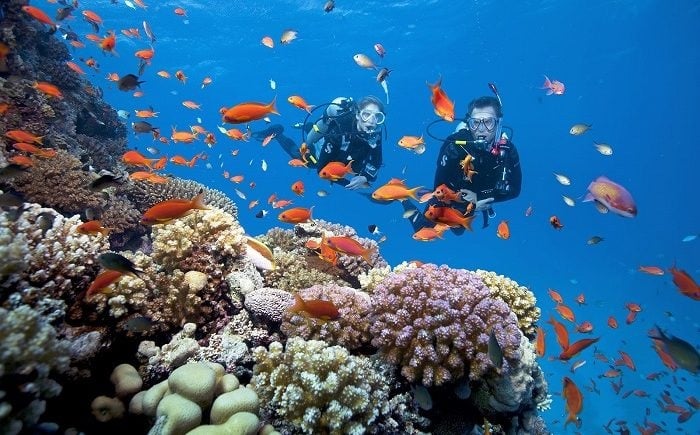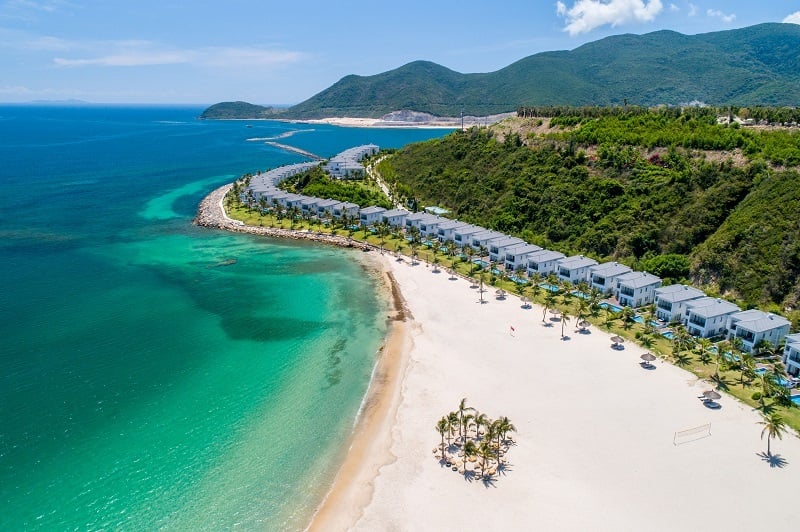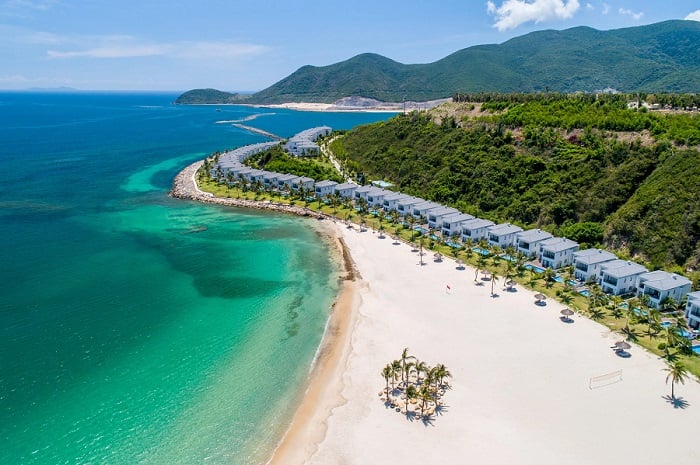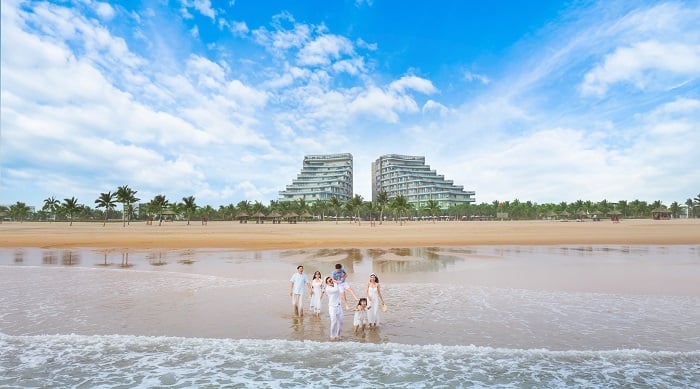
The expansion of the tourism industry has resulted in a necessity for sustainable travel. Uncontrolled tourism can have detrimental effects on culture, social structure, wildlife, and biodiversity. Therefore, it is essential to participate in sustainable travel practices, which aid in mitigating the environmental impacts of tourism. Read on for a brief guide to understanding what it means to travel sustainably and how to embark on such a journey.
1. What does sustainable travel mean?
According to the World Tourism Organization (UNWTO), sustainable travel, or sustainable tourism, is defined as tourism that considers its economic, social, and environmental impacts.
In other words, sustainable travel refers to the implementation of sustainable practices to limit the negative consequences of tourism while emphasizing the positive impacts.
Sustainable travel aims to meet not only the needs of visitors and the industry but also those of the environment and communities.

>>> Read more: Eco travel: Embrace sustainable tourism practices for a greener future
2. The elements of sustainable tourism
2.1. Environment
Sustainable travel helps preserve valuable natural resources by optimizing the use of these resources while minimizing the negative impacts on the environment (animals, landscapes, livelihoods, energy use, etc.)
2.2. Culture and society
Sustainable travel entails a responsible approach that avoids negative impacts on the social and cultural fabric of the communities it operates in. It requires respecting the social and cultural authenticity of the locals, preserving the cultural heritage and traditional values.
It is important to educate all relevant parties (individuals, communities, tour program operators, and authorities) at all stages of planning, executing, and monitoring, about their roles.
2.3. Economy
Sustainable travel ensures long-lasting economic activities, contributes to the community economically, and generates income that is distributed fairly among all beneficiaries. It provides stable job opportunities and profit-sharing schemes, as well as social services for local communities.

>>> Explore different travel types to plan your next trip!
3. 8 sustainable travel tips
3.1. Eco-friendly places to stay
By choosing sustainable travel and staying in eco-friendly accommodations, tourists can minimize the environmental impacts of their travels. These accommodations prioritize sustainability by implementing practices such as renewable energy and bio-architecture to help preserve the environment. In addition, eco-friendly places also support the local economy by providing locally sourced food options for guests.
3.2. Sustainable transportation options
When it comes to sustainable travel, taking public transportation is a great way to reduce air pollution and ease traffic. Using public transportation, the number of vehicles on the roads will decrease, which results in less carbon dioxide being released into the atmosphere.
Additionally, fewer vehicles help reduce traffic jams and improve traffic flow, making public transportation an eco-friendly option that benefits both the environment and local communities.

3.3. Purchasing from local businesses
Supporting and purchasing from local businesses not only boosts the local economy. Local products typically involve less transportation, which reduces carbon emissions. They also require minimal packaging, making their purchase a socially and environmentally responsible choice for sustainable travel.
3.4. Using environmental resources as efficiently as possible
Preserving biodiversity is dependent on efficient resource use. The ecological footprint serves as an indicator to measure the environmental impacts resulting from excessive use of natural resources. When it comes to sustainable travel, understanding and minimizing our ecological footprint is an essential step towards preserving the natural environment for future generations.

3.5. Respecting the local communities' culture
When practicing sustainable travel, showing respect for the culture of local communities not only enhances the travel experience but also helps to preserve their cultural heritage. By respecting these traditions, travelers help maintain the unique identity of local communities and foster a sense of unity among their members.
3.6. Rejecting single-use plastic products
Practicing sustainable travel involves making responsible choices, such as refusing to use single-use plastic products. The production of plastic requires the consumption of fossil fuels, leading to carbon dioxide emissions and contributing to climate change. Furthermore, it is estimated that approximately 8 million tons of plastic enter the oceans annually, posing a severe threat to marine ecosystems.

3.7. Slow travel
Traveling at a slower pace can have both financial and environmental benefits. Taking the train, for example, not only has a lower ecological impact. It is also a more cost-effective choice. In addition, traveling slowly allows for a greater appreciation of the surrounding scenery.
3.8. Food and culinary practices that promote sustainability
If you are looking to travel sustainably, here are some tips on how to incorporate sustainable culinary practices into your travels.
Choosing local food options can help support the local economy while reducing the environmental impacts of food transportation. Plant-based options tend to have a lower carbon footprint than meat-based dishes. Additionally, reducing food waste can help minimize the amount of waste sent to landfills.
By embracing sustainable food choices, travelers can not only make a positive impact on the environment but also experience new and delicious culinary traditions.

>>> See more: Heritage Travel: The best type of travel for culture & history lovers
4. 10 sustainable travel destinations that tourists should visit
For the sustainable travel trend, environmentally-aware travelers seek destinations that prioritize sustainability and responsible tourism practices. We have compiled a guide of ten exceptional travel destinations across the globe that not only boast awe-inspiring landscapes and rich cultures but also prioritize sustainable practices in various ways, making them ideal for responsible travelers.
- Costa Rica
- Bhutan
- Scotland
- Rwanda
- Slovenia
- Finland
- New Zealand
- Barbados
- Madagascar
- Vietnam
Vietnam not only offers a range of unique experiences to visitors but also promotes sustainable travel, in destinations such as:
- The pristine beaches of Phu Quoc and Nha Trang, where efforts are made to preserve the local marine ecosystems
- The charming old town of Hoi An, where eco-friendly initiatives are encouraged to protect the city's cultural heritage and environment
- The bustling metropolis of Da Nang, where efforts are made to reduce carbon emissions and promote eco-friendly transportation
- Ha Long Bay, where there are programs in place to protect the bay's delicate ecosystem and biodiversity
As a result, Vietnam offers a perfect blend of natural beauty, cultural richness, and sustainable travel practices, making it an ideal destination for conscientious travelers.

Vinpearl, known for its luxury resorts and hotels in many popular destinations, is a great option to consider if you are seeking accommodations that offer both a comfortable stay and sustainable practices. Consider Vinpearl for your next stay in Vietnam and enjoy unparalleled luxury while supporting sustainable travel.


>>> Book rooms in Vinpearl Phu Quoc, Vinpearl Nha Trang, Vinpearl Resort & Golf Nam Hoi An, Vinpearl Resort & Spa Ha Long and experience some of the most stunning resorts in Vietnam!
Sustainable travel involves being mindful of the impacts we have on the environment and the local communities we visit. It means choosing travel options that are environmentally friendly, socially responsible, and economically viable. By making small changes in the way we travel, we can all contribute to a more sustainable and responsible tourism industry.
























